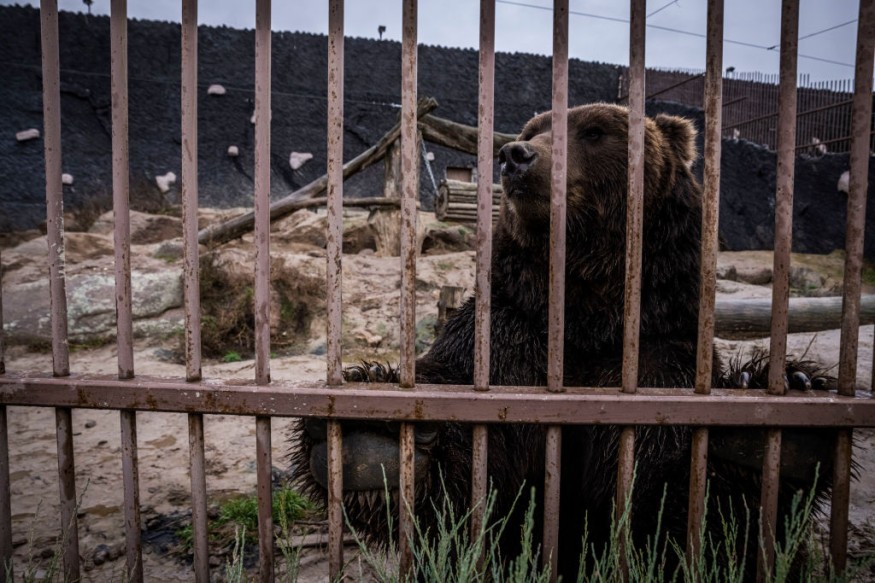A United Kingdom zoo is preparing for the arrival of the first Ukrainian animal refugee in the country.
Russian shelling destroyed Yampil the bear's home zoo in Ukraine last year, and he was the only one that survived.
The bear is currently residing in Natturhelpcentrum in Belgium and plans to relocate to Scotland in 2024.

Traumatic Experience
Yampil was only a few days from death when Ukrainian troops discovered him in the rubble of an abandoned zoo in the town near Donetsk that gave him his name.
However, the Asian black bear appeared to have no scars from the shelling that devastated his habitat or the Russian occupation that killed nearly all of the 200 other zoo animals.
When the Five Sisters zookeepers arrived at his temporary home at the Natuurhulpcentrum rescue center in eastern Belgium in September, they were relieved to find a healthy bear chomping merrily on a cucumber--a world away from the videos they had seen of Yampil.
Yampil was dirty and concussed after a shell landed near his enclosure, being carried through the rubble on a tarpaulin by soldiers.
"Bears can often suffer mental health problems after going through a traumatic experience, and so it was really important we understood Yampil and what to expect from him," said Garry Curran, the head of carnivores.
Zookeepers observed that although he was frightened at first, he appears to have acclimated very well and did not exhibit any problematic stress-related behaviors.
He appears to be a calm and gentle animal, which was reassuring.
"If one animal deserves a good and better future, it's without doubt war victim Yampil. We're very grateful they can offer Yampil the future he deserves," Frederik Thoelen, a spokesperson for Natuurhulpcentrum.
The zoo decided to take Yampil several months earlier than planned in order to make room at Natuurhulpcentrum for newly rescued animals.
However, the Five Sisters must fund £200,000 to finance the enclosure as well as his future upkeep and veterinary treatment for the rest of his life.
The zoo has so far raised £50,000 and is still accepting donations.
Ukraine Zoo
A total of €2 million has already been raised to assist Ukrainian zoos in caring for their animals so that they can remain in the country with the help of the emergency campaign from the European Association of Zoos and Aquaria (EAZA).
Zoo evacuations have been intermittent, according to the organization, because the majority of animal evacuations have come from Ukrainian rescue centers, which hold animals from private collections and circuses and are organized by EARS, the European Alliance of Rescue Centres.
Pozna Zoo in Poland has taken in almost 200 Ukrainian animals, including 35 lions and eight tigers.
Some of these species remain in Pozna, while others have been rehomed in other EAZA member zoos, EARS sanctuaries, and other locations.
Aysa, a lioness that was rescued from a private zoo near Donetsk, is currently in Pozna. She recently gave birth to three cubs, Teddi, Emi, and Santa.
Yorkshire Wildlife Park is attempting to obtain permission to relocate the lions to the UK before Christmas. Because of Brexit, paperwork is required for each country the lions must pass through on their trip to their new home.
The wildlife park, which became well known in 2010 for successfully rescuing 13 lions from awful conditions in Romania, will be the second after Five Sisters to accept Ukrainian zoo animals.
© 2025 NatureWorldNews.com All rights reserved. Do not reproduce without permission.




